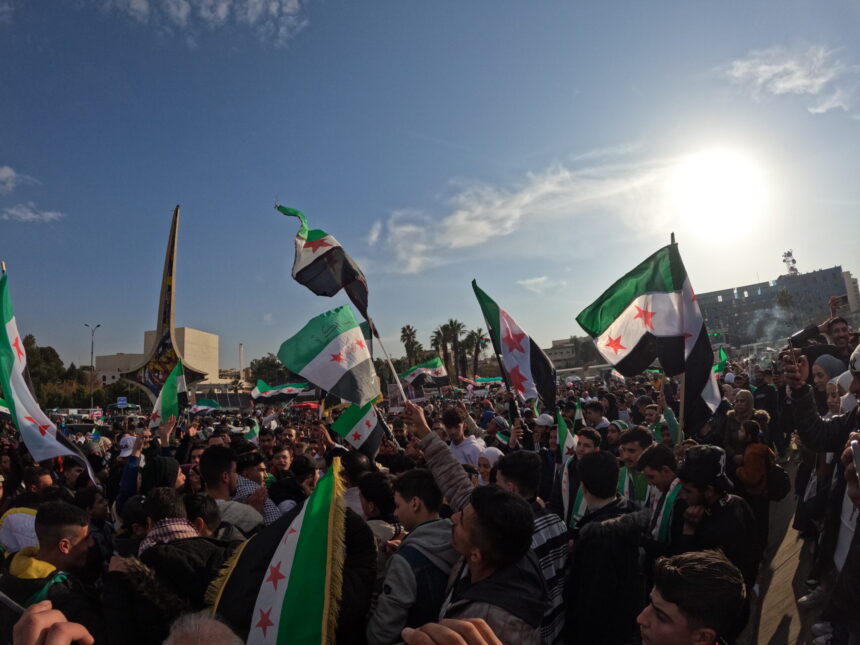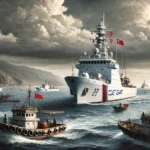Postwar Syria could go wrong in many ways. Here’s how the US can help it go right
Both US President Joe Biden and President-elect Donald Trump have been careful but predictable in their statements so far about the overthrow of Syrian President Bashar al-Assad. The early decisions—increasing humanitarian aid, keeping the Islamic State of Iraq and al-Sham (ISIS) down, and telling the new Syrian leaders that they will be judged by their actions, not just their words—are the easy ones. The hard part is just starting. There are many ways this could go wrong, and only a few ways it could go right.
As someone extensively involved in postwar planning efforts over many decades, including leading US State Department efforts in postwar Iraq, I am somewhat amused by statements claiming that “no one knows” what will happen next in Syria. In fact, it is relatively easy to predict the major outlines of what will happen next, despite (or often because of) well-meaning but ill-informed or under-resourced efforts by outside actors. Trump’s statement on December 16 that “Turkey is going to hold the key to Syria” was one of the most refreshingly honest statements by any US official, past or present. There are many ways in which the result could turn into chaos, leading to terrorism and more fighting that could draw the United States into another major Middle East war within the next fifteen years. The United States will need to steer between too much involvement and too little involvement. Here is how the near future will likely play out.
Follow the money (and guns)
In the next few months, there will be a power struggle among the anti-Assad groups in Damascus and western Syria. Adding to this combustible mix, former regime supporters and outside players like Iran will seek a comeback. The cynical reality is that whichever groups have the most guns and control the most money will become the leading voices in Syrian politics. It would be naïve to think that Syrians will get to decide this peacefully on their own without outside interference. Instead, external support and internal ruthlessness will be decisive.
This is a warning, but if handled in a clear-eyed fashion, it can also be a blueprint for managing the politics of postwar Syria in ways that lead to better outcomes for the Syrian people, the region, and countries like the United States that want a sustainable peace in the Middle East.
Well-meaning international mediators, such as those the United Nations (UN) was supposed to provide under Security Council Resolution 2254, will talk about power-sharing and a constitution, but the real power around the negotiating table will be the groups that have the most guns and the most money. The nascent civil society that Syria truly needs will have only minor influence, and most of that will come, if at all, at the insistence of outside players. In late 2025 or early 2026, the UN will be brought in to oversee elections. I can already predict that everyone will say, in hindsight, that these elections were held too soon. The UN elections experts will insist on a proportional representation system, ostensibly to give all Syrian political factions a voice.
What this will do is cement in power those groups that control the guns and the money. Money is the mother’s milk of politics. Syria is no exception. The proportional representation system gives party bosses who control party funds the power to rank-order the candidates, with those at the top of the lists of the bigger parties assured of election victory. Loyalty to the party boss becomes all-important for these candidates, not representing the people who elect them.
Neither al-Qaeda offshoot Hayat Tahrir al-Sham (HTS) nor the Turkish-supported Syrian National Army needs lessons about controlling guns and money. For years, HTS has ruthlessly and efficiently taken control of “customs duties” and monopolies over trucks and people crossing the Turkey-Syria border. These groups, unless blocked by their international supporters, will try to seize Syrian government ministries as a lucrative source of funds and jobs for supporters before elections take place. Iraqi political parties did this in 2003.
There is good reason to be concerned about HTS leader Ahmad al-Sharaa (formerly known by his nom de guerre Abu Mohammed al-Jolani). In his interviews, he talks about “institutional governance.” To be fair, he understands the need to project moderation because many Syrians do not want to replace the Assad dictatorship with a Salafi jihadist one. Syrians want peace, not a march on Jerusalem. Remember that Fidel Castro tried to moderate his image after he seized power in Cuba in 1959, only to reveal his true intentions a few months later. The Taliban in 2021 tried to project an image of moderation, only to revert to gender apartheid. Overcoming skepticism toward HTS’s claims of moderation will depend on the new Syrian government taking actions that gain the support of both Syrians and countries, such as the United States, whose support is going to be essential for Syria to move in a positive direction.
Iran and Hezbollah will almost certainly try to regain power through politics. In 2003, Iran recovered quickly from the US takeover of Iraq by generously funding political parties (which the United States would not do) and militias to intimidate nationalist Iraqis. The Iranian Quds Force—the Islamic Revolutionary Guard Corps’ overseas paramilitary and covert action group—has deep connections to Syrian politics and the country’s security services. Plus, Iran still has ground lines of communication through Iraq into eastern Syria using Iranian-backed militias.
Seven steps to help the transition
The United States and the world have a lot to lose if Syria’s new leaders revert to terrorism, if ISIS is allowed to recover, or if Iran and Hezbollah regain power in Syria. Here are seven ways to improve the odds:
- Turkey, Jordan, and other Arab governments will be supporting groups inside Syria, whether the United States wants them to or not. For the moment, Turkey is in the driver’s seat. The United States should work closely with its allies, with the goal of getting everyone to support only groups that work toward tolerance and coexistence internally and peace with all of Syria’s neighbors externally, including not just Israel and Lebanon but also, importantly, with Turkey. Groups that are not willing to meet these criteria need to be cut off from outside support, no matter what previous support they received.
- The United States should make it a top priority to prevent Iran and Hezbollah from being spoilers in the new Syria. And Washington should expose Russian attempts to bribe its way back into influence.
- The United States and its allies should prioritize keeping aid distribution out of the control of hard-line groups. Look at Gaza, where Israelis complain that Hamas controls distribution and criminal gangs intercept aid shipments.
- HTS should be given a chance to show it has changed, and actions matter more than words. But Syrian officials should not be made to guess about what actions matter the most to the United States. The United States will need a channel to convey to the new Syrian leadership which actions would jeopardize prospects of further US support, including the all-important sanctions relief that new Syrian officials, including Sharaa, are aware they need.
- Outside governments should work to keep Syrian ministries in technocratic hands, out of the control of individual militias or parties, to avoid a repeat of the disastrous muhasasa system in Iraq.
- Since the 1980s, the United States has been allergic to funding foreign political parties directly, although Trump often shows little regard for historical restraints on US action. But how internal politics is funded in a country emerging from tyranny is hugely consequential. Then-President George W. Bush ordered the US invasion of Iraq in part to help make Iraq a democracy, but the United States failed to fund Iraqi political parties, leading some to take money from Iran and others to engage in massive corruption, in part to fund party activities. First-time free elections in countries like Syria do not result in stability and progress by chance. The United States has a poor record of picking winners in foreign countries (Iraq and Afghanistan being obvious cases in point), but the United States does well at promoting leadership development more broadly. Funding a robust system of opinion polling could also be one of the most important investments in a stable Syria that the United States and its European allies could make. Given that US allies and adversaries are unlikely to feel restrained from picking their preferred winners, the United States should stay clear-eyed about the importance, at least, of thwarting the ambitions of its enemies.
- It’s too early to predict which electoral system will have the best chance to produce a peaceful, stable Syria, but this will be a hugely consequential decision that should not be left only to UN elections experts when the time comes. This requires careful analysis, not just by neutral elections officials but by those most knowledgeable about Syrian internal politics. The United States needs to be prepared to weigh in with its allies and with the UN to make sure that the election system gives the Syrian people the best chance for a stable, peaceful future.
Countries such as Turkey, Israel, and Lebanon may have bigger stakes in Syria than the United States does, but what happens in postwar Syria is still vitally important to US interests. No one suggests that Syria needs more US troops, but the next few years will see a historic opportunity to avoid a future Middle East war that could draw in the United States. Expanding the Abraham Accords depends in part on better relations between Israel and Syria. The next few weeks will be crucial, but Trump could have a truly historic win if he listens to the right advisers on his team.
It will be up to the Trump administration whether Syria falls into the hands of terrorists, Iran, or chaos—or whether the Syrian people will genuinely have a chance to determine their own path to peace, reconstruction, and prosperity.
By: Thomas S. Warrick is a nonresident senior fellow in the Atlantic Council’s Scowcroft Middle East Security Initiative and a former deputy assistant secretary for counterterrorism policy in the US Department of Homeland Security.
Source: atlanticcouncil.org







